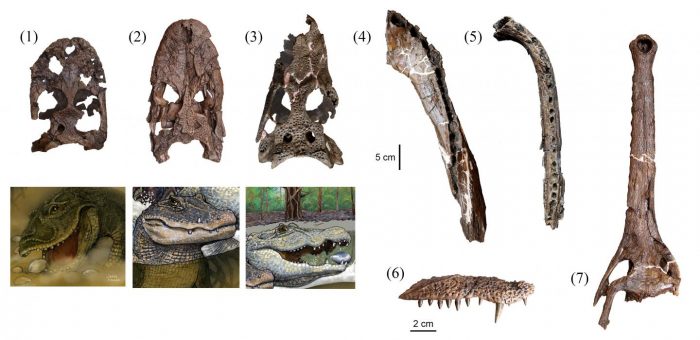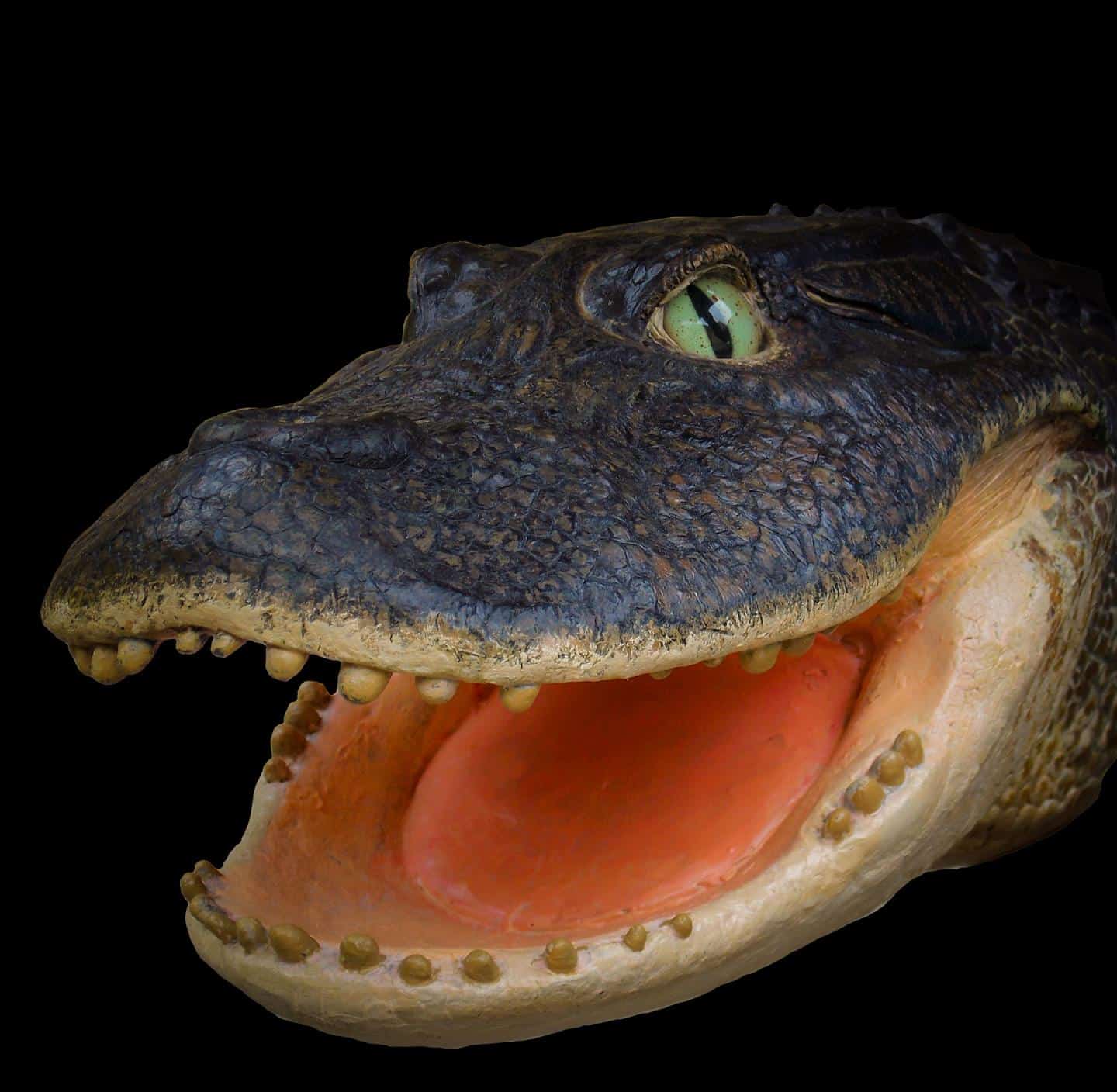In Pre-Amazonian Peru, the crocodile was king. Seven species of crocodile, to be precise. That’s more species of crocodile than have ever been found co-existing in one habitat — and we have the Amazon River to thank for their disappearance.
OK, OK, so the Amazon is veritably teeming with biodiversity across the board. But for crocodiles, at least, the river was bad for business.
According to a new study in the Proceedings of the Royal Society B, the massive wetlands that once sat in the Amazon basin (until the river formed some 10.5 million years ago) were home to an unprecedented diversity of crocs. And those crocs were able to share their space because their diet was very different from species living today. Instead of preying on the large creatures, the ancient crocs focused on clams and other small mollusks.

Three of the seven species, which were uncovered during expeditions starting in 2002, are entirely new. The most telling fossil was that of Gnatusuchus pebasensis. With its short, shovel-like mouth and rounded teeth, it almost certainly trawled the swamp mud to scoop up shelled prey.
There were more generalized feeders, too: The researchers report finding the first unambiguous fossilized example of the smooth-fronted caiman, a species that still lives today. Unlike the funny-looking pebasensis, the smooth-fronted caiman was probably eating fish and other swimmers.
But for the mollusk eaters, the birth of the booming river eco-system meant certain death. Mollusk populations went way down as the river evolved. Today, even the hyper-diverse Amazon only has three species of crocodile — all the more generalized caimans — that live in the same area, and they rarely stay in the same habitats at the same time.
See also: Costa Rica’s crocodile conundrum






